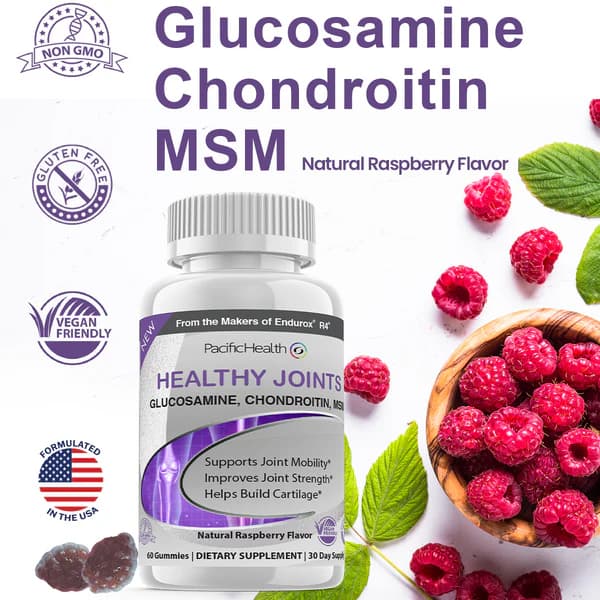Telomeres are like the protective caps at the ends of our shoelaces, but for our DNA. They play a crucial role in keeping our chromosomes intact. As we age, these telomeres get shorter, which can lead to cellular aging and even diseases. Scientists are exploring if we can slow down or even reverse this process to help us live healthier, longer lives. This article delves into the fascinating world of telomeres and their impact on aging.
Key Takeaways
- Telomeres protect our DNA, but they shorten as we age, which can lead to health issues.
- The enzyme telomerase can lengthen telomeres and has shown promise in lab studies.
- Lifestyle choices like diet, exercise, and stress management can influence telomere length.
- Current research is looking into therapies that target telomeres to treat age-related diseases.
- Understanding telomeres better could unlock new ways to extend healthy living.
Understanding Telomeres and Their Function
What Are Telomeres?
Telomeres are repetitive DNA sequences located at the ends of chromosomes. They act like protective caps, preventing chromosomes from fraying or sticking to each other. Each time a cell divides, its telomeres get shorter. This shortening process is a natural part of aging.
The Role of Telomeres in DNA Protection
Telomeres safeguard our genetic data by ensuring that the ends of chromosomes do not deteriorate or merge with neighboring chromosomes. This protection is crucial for maintaining the integrity of our genetic information. Without telomeres, important DNA could be lost during cell division, leading to genetic disorders.
Telomere Shortening and Cellular Aging
As cells divide, telomeres become progressively shorter. When they reach a critical length, the cell can no longer divide and becomes inactive or dies. This process is linked to aging and age-related diseases. Telomere shortening acts as a biological clock, limiting the number of times a cell can divide.
The Science Behind Telomere Shortening
Mechanisms of Telomere Shortening
Telomeres, the protective caps at the ends of chromosomes, naturally shorten with each cell division. This is due to the "end-replication problem," where DNA polymerase cannot fully replicate the 3' ends of chromosomes. As a result, a small portion of telomeric DNA is lost during each cell cycle. Over time, this leads to progressively shorter telomeres.
Factors Contributing to Telomere Attrition
Several factors can accelerate telomere shortening:
- Oxidative Stress: Damage from free radicals can hasten telomere loss.
- Inflammation: Chronic inflammation can negatively impact telomere length.
- Lifestyle Choices: Poor diet, lack of exercise, and smoking can contribute to faster telomere attrition.
Impact of Telomere Shortening on Health
Shortened telomeres are linked to various age-related health issues. When telomeres become critically short, cells enter a state called senescence, where they no longer divide. This can lead to tissue dysfunction and contribute to diseases such as:
- Cardiovascular Disease: Short telomeres are associated with heart disease.
- Diabetes: Telomere length may influence the risk of developing diabetes.
- Cancer: Cells with very short telomeres can become unstable, increasing the risk of cancer.
Understanding the science behind telomere shortening helps us grasp how cellular aging occurs and its implications for overall health. By addressing factors that contribute to telomere attrition, we may find ways to promote healthier aging.
Telomerase: The Enzyme That Could Change Aging
What is Telomerase?
Telomerase is an enzyme that adds DNA sequences to the ends of telomeres, which are protective caps on the ends of chromosomes. In young cells, telomerase helps maintain telomere length, preventing them from wearing down too quickly. However, as cells divide over time, telomerase activity decreases, leading to shorter telomeres and cellular aging.
How Telomerase Works
Telomerase works by adding repetitive nucleotide sequences to the ends of telomeres. This action counteracts the natural shortening that occurs during cell division. The enzyme is particularly active in reproductive cells, ensuring that telomere length is maintained from one generation to the next. In most somatic cells, however, telomerase activity is low or absent, contributing to aging and cellular senescence.
Potential Benefits and Risks of Telomerase Activation
Activating telomerase in somatic cells could potentially slow down or even reverse cellular aging. This has led to exciting research into telomerase gene therapy and other interventions. For example, studies in mice have shown that telomerase activation can extend lifespan and improve health markers. However, there are significant risks. One major concern is that increased telomerase activity could also promote cancer, as cancer cells often exploit telomerase to become 'immortal.'
Telomerase activation holds promise for extending human healthspan, but it comes with significant challenges that must be carefully managed.
Lifestyle Factors Influencing Telomere Length
Diet and Nutrition
A balanced diet is crucial for maintaining telomere length. High intake of dietary fiber and unsaturated fats can protect telomeres, while diets high in sugar and saturated fats can accelerate telomere shortening. Foods rich in antioxidants, such as fruits and vegetables, help reduce oxidative stress, which is harmful to telomeres.
Exercise and Physical Activity
Regular physical activity is associated with longer telomeres. Aerobic exercises, in particular, support telomere health. Health professionals recommend at least 30 minutes of exercise daily to help maintain telomere length.
Stress Management and Mental Health
Chronic stress is a significant predictor of shorter telomere length. Practices like meditation and mindfulness can help manage stress levels. Reducing stress not only benefits mental health but also helps in maintaining telomere length.
Healthy lifestyle choices, including a balanced diet, regular exercise, and effective stress management, can contribute to longer telomeres and potentially slow down the aging process.
Current Research and Future Directions in Telomere Science
Recent Advances in Telomere Research
In recent years, scientists have made significant strides in understanding telomere biology. These discoveries have opened new avenues for potential treatments targeting age-related diseases. Researchers are exploring how telomere length can be maintained or even extended to delay cellular aging. Experimental techniques, such as genetic manipulation and pharmacological interventions, have shown promise in model organisms.
Potential Therapeutic Interventions
Several therapeutic strategies are being investigated to modulate telomere dynamics. These include:
- Telomerase Activators: Compounds that activate telomerase, the enzyme responsible for adding nucleotide sequences to telomeres, are being studied for their potential to extend cellular lifespan.
- Gene Therapy: Techniques to introduce or enhance telomerase activity in cells are under exploration.
- Small Molecule Inhibitors: These aim to protect telomeres from degradation by inhibiting specific pathways that lead to telomere shortening.
Challenges and Ethical Considerations
Despite the promising advances, there are significant challenges and ethical considerations. One major concern is the potential for telomerase activation to increase the risk of cancer, as cancer cells often exploit telomerase to become immortal. Additionally, the long-term effects of telomere-targeting therapies are still unknown, necessitating cautious and thorough research.
The future of telomere science holds great promise, but it also requires careful navigation of the ethical and scientific challenges to ensure safe and effective treatments.
Telomeres and Age-Related Diseases
Link Between Telomeres and Chronic Diseases
Telomeres, the protective caps at the ends of chromosomes, play a crucial role in cellular aging. Shortened telomeres are linked to various chronic diseases, including heart disease, diabetes, and certain cancers. As telomeres shorten, cells lose their ability to divide and function properly, leading to tissue degeneration and disease.
Telomere Length as a Biomarker for Disease
Telomere length is increasingly being studied as a potential biomarker for age-related diseases. Shorter telomeres are often found in individuals with chronic conditions, suggesting that telomere length could help predict disease risk. Researchers are exploring ways to measure telomere length accurately and use this information in clinical settings.
Therapeutic Approaches for Age-Related Diseases
Several therapeutic strategies are being investigated to combat telomere shortening and its effects on aging. These include:
- Telomerase Activators: Compounds that activate telomerase, an enzyme that extends telomeres, are being studied for their potential to delay aging and treat age-related diseases.
- Antioxidants: These substances can reduce oxidative stress, which contributes to telomere shortening.
- Lifestyle Interventions: Healthy diet, regular exercise, and stress management can positively impact telomere length and overall health.
Understanding the role of telomeres in aging and disease opens new avenues for therapeutic interventions aimed at promoting healthy aging and longevity.
Exploring Anti-Aging Strategies Targeting Telomeres
Pharmacological Interventions
Pharmacological interventions aim to slow down aging by targeting telomeres. Telomerase activators are one of the most researched options. These activators help maintain telomere length, potentially delaying cellular aging. Some common telomerase activators include TA-65 and other compounds that stimulate telomerase activity.
Genetic and Cellular Therapies
Genetic and cellular therapies focus on altering genes or cells to maintain telomere length. Techniques like gene editing and stem cell therapy are being explored. These methods aim to repair or replace damaged cells, thereby extending the lifespan of tissues and organs.
Alternative and Complementary Approaches
Alternative approaches include lifestyle changes and natural supplements. Antioxidants like vitamin C and E, and anti-inflammatory agents such as omega-3 fatty acids, can help protect telomeres from damage. Stress management techniques like meditation and yoga also play a role in maintaining telomere length.
While these strategies show promise, more research is needed to fully understand their long-term effects and potential risks.
Conclusion
In summary, while telomeres play a significant role in the aging process, they are not the sole factor determining lifespan. Research has shown that maintaining or even lengthening telomeres could potentially extend life and improve health. However, this comes with its own set of challenges and risks, such as the potential for increased cancer risk. Scientists have made strides in understanding how telomerase can be used to keep cells dividing without becoming cancerous, opening the door to exciting possibilities for treating age-related diseases and conditions. As research continues, the hope is that we can find safe and effective ways to harness the power of telomeres to promote healthier, longer lives.
Frequently Asked Questions
What are telomeres?
Telomeres are protective caps at the ends of our chromosomes. They help keep our DNA safe during cell division.
Why do telomeres shorten?
Telomeres get shorter each time a cell divides. Over time, this natural process leads to shorter telomeres.
How does telomere shortening affect aging?
As telomeres get shorter, cells age and stop working properly. This can lead to signs of aging and age-related diseases.
What is telomerase?
Telomerase is an enzyme that helps rebuild and lengthen telomeres. It can keep cells from aging too quickly.
Can lifestyle changes impact telomere length?
Yes, healthy habits like a good diet, regular exercise, and stress management can help maintain telomere length.
Are there risks to activating telomerase?
While telomerase can keep cells young, it might also increase the risk of cancer. Scientists are still studying this.



















